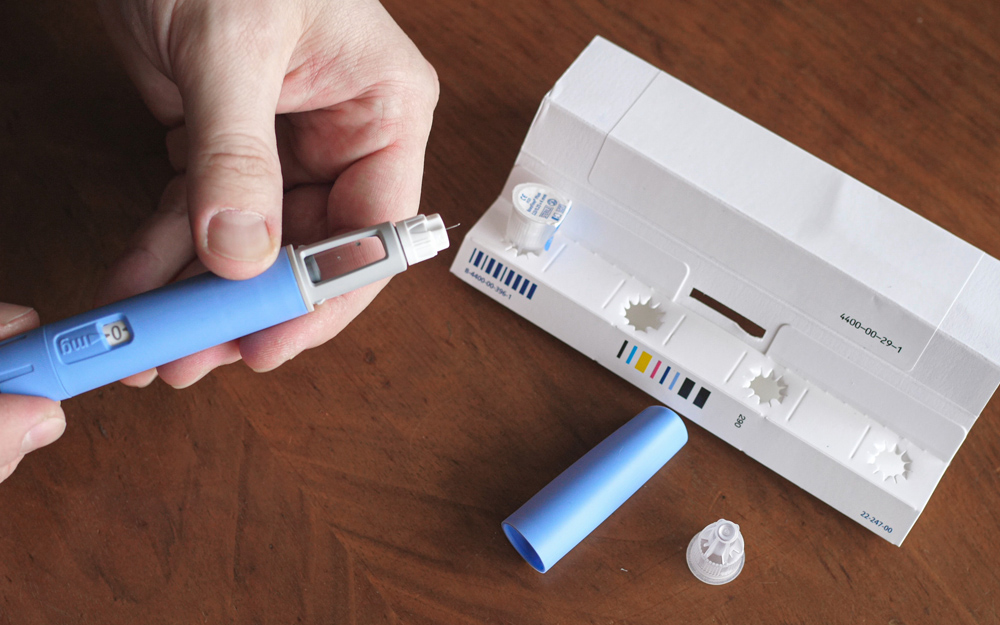What to Know About High Blood Pressure in Young Men
Date
July 17, 2023
Credits

Date
July 17, 2023
Credits
Medical providers featured in this article

In Brief
{{cta-block}}
Do you think high blood pressure is an “older man’s health problem”? Then you may be surprised to hear that nearly one-third (31.2%) of males ages 18-39 have hypertension, or blood pressure above 130/80 mmHg.
Not even the fittest men escape its grip. A study of 2,733 elite athletes revealed that 34.3% had blood pressure readings of 140/90 mmHg or greater.
Why are more young men experiencing hypertension?
While risk factors such as obesity, poor diet and lack of exercise are becoming more common for both sexes, “younger men have a higher prevalence of (other) risk factors for hypertension—such as smoking and alcohol use—compared to younger women,” said Natalie Bello, MD, director of Hypertension Research at the Cedars-Sinai Smidt Heart Institute. Genetic differences between men and women also play a role.
Among athletes, medications ranging from steroids and other doping agents to over-the-counter pain relievers can also boost blood pressure, Bello said.
Hypertension usually has no symptoms and goes unnoticed until a routine exam reveals its presence. Left untreated, the condition can lead to a host of ills, including sexual dysfunction, vision loss, cardiovascular disease and stroke.
{{providers}}
If I have no symptoms, how can I tell if I have high blood pressure?
If you’ve never had your blood pressure checked, get it done now. If it’s been a while since your last physical exam, make an appointment with your doctor. Your visit will include a blood pressure reading. It’s recommended that all adults get their blood pressure checked by a doctor at least once per year, Bello said.
Why is tracking my blood pressure so important?
Researchers have discovered that rising blood pressure affects the body over a lifetime, leading to disease in midlife and later. In fact, recent studies have shown that decades of rising blood pressure can raise your risk of heart disease and cognitive problems.
“Your blood pressure might be slightly elevated in your 30s, higher in your 40s and in your 50s higher still. That’s doing cumulative damage over time,” Bello said. “So, we want to keep it less than 120/80 mmHg all the time. We don’t want to wait until you’ve had a heart attack. Not when we can prevent that by taking care of you in your 30s and 40s.”
What happens if my blood pressure is 130/80 or higher?
If your blood pressure reading is high at two separate office visits, your doctor will confirm a diagnosis of hypertension using either an ambulatory monitor or a home monitor you can purchase at your local drugstore. The ambulatory monitor is a device you’ll wear for 24-48 hours. It inflates and deflates every 15-30 minutes and captures blood pressure readings when you’re awake and when you’re asleep. If a hypertension diagnosis is confirmed, your doctor will work with you to treat it.
“Younger men have a higher prevalence of (other) risk factors for hypertension—such as smoking and alcohol use—compared to younger women.”
How is hypertension treated in younger adults?
If your blood pressure is elevated, you’ll need to make lifestyle changes, such as losing weight and eating a healthier diet. Depending on your risk factors—such as obesity, smoking or having relatives with high blood pressure—you may also need to take medication.
Bello warns that there are many myths and misunderstandings about blood pressure medications and side effects, such as sexual dysfunction or urinary frequency. “Your doctor will work with you to find medication that will lower your blood pressure without causing unwanted symptoms,” she said.
Your doctor may also order tests and bloodwork to check for contributing causes, such as sleep apnea or diabetes.
How can I prevent hypertension?
A few lifestyle changes can make a big difference:
- Get physically active
- Lose any excess weight
- Eat a healthy diet
- Get adequate sleep
- Quit smoking
- Avoid drinking excess alcohol
“Hypertension is the leading modifiable risk factor for cardiovascular disease, including heart attack and stroke,” Bello said. “The good news is that, if we treat it, we can prevent those bad things from happening.”





